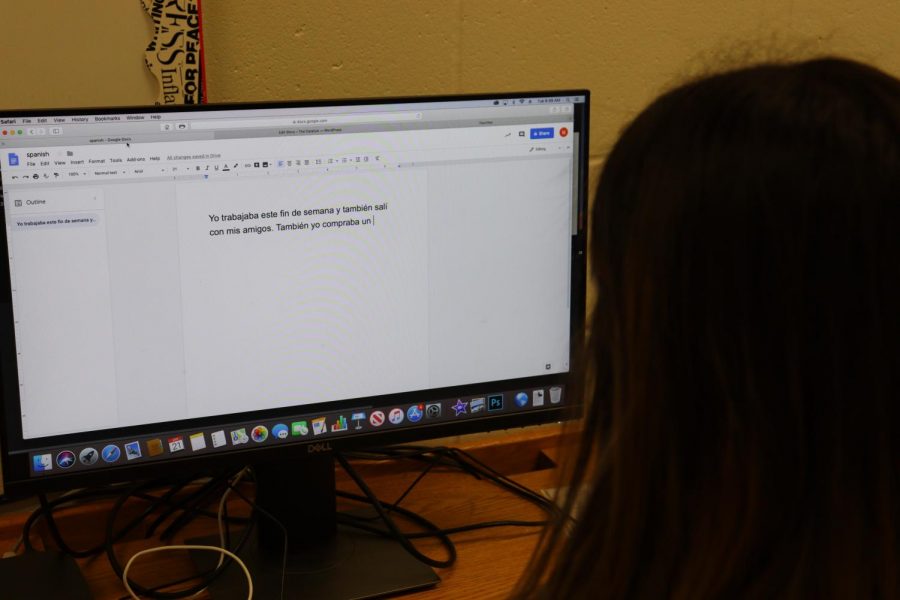The language of diversity
Learning more than one dialect is important to cultural variety and complex thought
Second languages are taken more seriously in high school as they are required, but this is not as effective as beginning that education at a younger age. Starting earlier increases the likelihood of maintaining multiple dialects and creates a pattern of advanced cognitive processes in the still constructing mind.
January 23, 2020
Language connects people through interests, culture, emotions and everything in between. Spoken or unspoken, there is an undeniable bond between humans in any interaction. Learning more than one language is increasingly important as the divides across oceans close through technological advances. Humans must use this evolution as a sign of the times and begin to make an effort as a whole to diversify life inside the borders.
In the world of success, having a second dialect is not only a gateway into countless opportunities but into a mindset of acceptance and appreciation of other cultures. Being able to connect and find a binding factor in a world of difference makes that person more open to what could be life changing decisions. Career paths open in situations of multilingualism and create a competitive job market.
The New American Economy released a study showing the increase of request in bilingual applicants for job searches to be able to reach a more successful level of human interaction. From 2010 to 2015 alone, the demand doubled from 240,000 job postings to 630,000.
Teaching foreign languages from a young age increases future opportunities for a child significantly. Not only will their brain functions such as memory and cognitive processes improve, but they will grow up with an added appreciation for other people as shown in a study at the Cornell Language Acquisition Lab.
An infant exposed to more than one language increases their metacognitive and metalinguistic skills. Growing up, these multilingual native-speakers will be able to code switch, a process of switching between languages, and become a more flexible learner as a whole as stated in a study from the University of Washington titled “Bilingual Learning in Children.”
It is a common phenomena especially in the United States to be ignorant to other languages and cultures. The ideology of “going back to one’s country” is uneducated and racist. The culturally diverse landscape of North America is plagued with mindsets that English is the language of Americans and those coming to the States speaking anything but are unjust and need to be removed, not to mention that the United States has no official language.
Cultural ignorance is insensitive and an uneducated take on travel and change of location. In an article by the United States Census Bureau, about 73% of immigrants age 25 or older come to America speaking anywhere from broken to near perfect English. Whether fluent or not, the effort is more than Americans are willing to put it. It is impressive and difficult to adapt to a new landscape especially when treated with such disrespect from people with English as their native tongue.
According to Pew Research Center, Europeans have better access to bilingual education with the content’s median of students learning a second language from ages six to nine being 92% while the US falls far behind with 20%. It is pushed to be educated on world languages to further advance young minds where the information will be better retained. Luxembourg has three official languages: French, German and Luxembourgish; however, they are still taught English and other superpower languages.
This school of thought evolves the malleable minds of children and enhances their creativity and analytical skills as stated by a research from Trinity Washington University titled “Why Learning a Second Language is Important.”
Being multilingual is also important for those who want to travel. Being able to talk to locals in whatever country a traveler is in is a huge advantage to experience the world as those living in it do. The tourist vibe vanishes as people are exposed to the beautiful life outside of over visited monuments and textbook picture examples of travelling.
Undoubtedly, there is evidence on paper and in experience to someone having one or more foreign languages under their belt. The business, travel and social worlds collide when there is more meaning to an interaction. Spoken words can make the difference between the average and the extraordinary.







